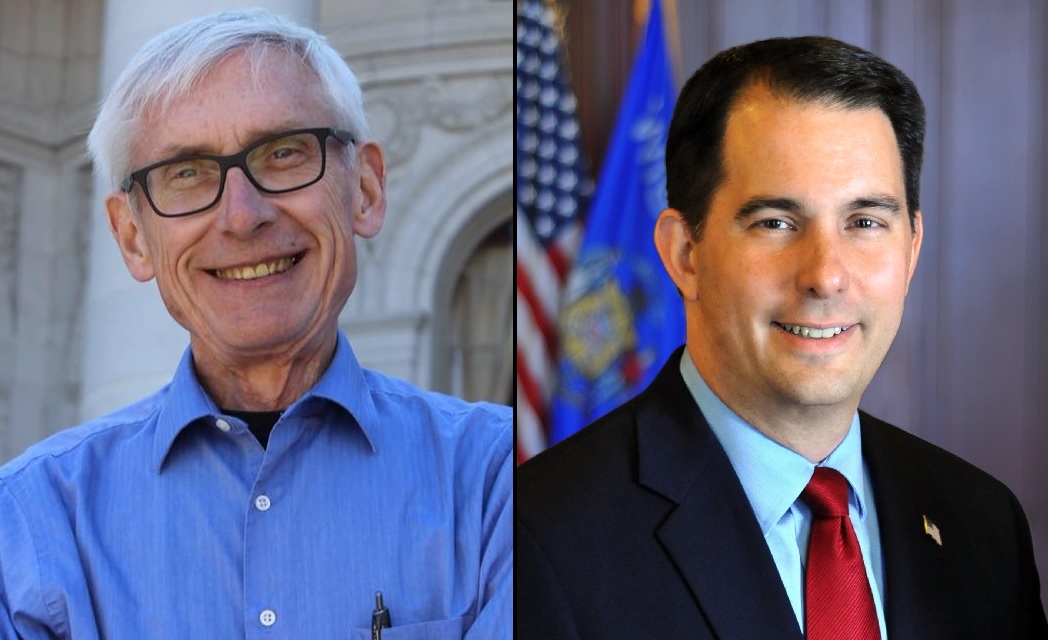Wisconsin
Wisconsin GOP attorney tries to persuade judge to toss lame-duck lawsuit

MADISON, Wis. (AP) — An attorney for Republican legislators urged a judge Monday to throw out a lawsuit challenging lame-duck laws limiting the governor and attorney general’s powers, warning that blocking the laws could throw decades’ worth of other statutes into jeopardy.
Every law the Legislature has passed in an extraordinary session would be vulnerable, creating a “rolling disaster in the state,” Misha Tseytlin warned Dane County Judge Richard Niess during a hearing.
“The lawyers of the state would be well-employed for the next five to 10 years,” Tseytlin said.
Republicans passed the lame-duck laws during an all-night extraordinary session in December, just weeks before Gov. Tony Evers and Attorney General Josh Kaul, both Democrats, took office. An extraordinary session is a previously unscheduled floor period initiated by majority party leaders. The Legislature typically schedules its floor period dates in a law passed at the beginning of each biennial session; extraordinary sessions aren’t part of that schedule.
A coalition of liberal-leaning groups headlined by the League of Women Voters filed a lawsuit in Dane County in January arguing the Legislature convened illegally to pass the laws. The groups argue that the Wisconsin Constitution allows lawmakers to convene only at such times as provided by law or in a special session called by the governor. The lame-duck extraordinary session was unconstitutional because it wasn’t on the schedule, the coalition contends.
Tseytlin worked during the hearing to persuade Niess to dismiss the lawsuit. He argued that the Legislature’s session runs continuously for two years regardless of scheduling. The Legislature has been using extraordinary sessions for decades, he said. Ruling such sessions unconstitutional would open up more than 3,000 pages of statutes passed during such sessions to challenges, including state funding for the Milwaukee Bucks’ new arena and sex offender laws.
Niess noted that just because something has become tradition doesn’t make it legal. Coalition attorney Jeff Mandell countered that the lawsuit seeks only a ruling on whether the lame-duck session was legal.
He said Wisconsin’s statutes aren’t as vulnerable as Tseytlin claims, noting that many laws are no longer relevant, such as expired contracts with public employee unions. Judges also could refuse to apply any find that the lame-duck session was illegal retroactively.
Niess concluded the hearing by saying he would issue a ruling soon. He didn’t elaborate.
The lame-duck laws prohibit Evers from withdrawing the state from lawsuits without legislative approval, preventing him from delivering on a campaign promise to remove Wisconsin from a multi-state lawsuit challenging the Affordable Care Act.
As for Kaul, the laws force him to seek permission from lawmakers before settling any lawsuits and to deposit settlement awards in the state’s general fund rather than in state Department of Justice accounts. The measures allow lawmakers to intervene in lawsuits using their own attorneys rather than Kaul’s DOJ lawyers.
They also restrict early in-person voting to the two weeks leading up to an election. In the past, municipalities could set their own hours. Madison and Milwaukee, both Democratic strongholds, held early voting for six weeks leading up to the November elections.
The coalition’s lawsuit is one of four actions challenging the lame-duck laws.
Five labor unions have sued in Dane County arguing the laws steal power from the executive branch and transfer it to the Legislature, violating the separation of powers doctrine.
The state Democratic Party has filed a federal lawsuit contending the lame-duck statutes violate free speech and equal protection guarantees. The party insists the laws amount to retaliation against Democrats for their political viewpoint, prohibit them from enacting policies they support and dilute their votes.
Liberal advocacy group One Wisconsin Now challenged the early voting restrictions in December as part of a larger federal lawsuit challenging Republican-authored voting. That suit is currently before the 7th U.S. Circuit Court of Appeals.
U.S. District Judge James Peterson struck down the early voting limits in mid-January, but that decision is now folded into the larger appeal and could be overturned.
Follow Todd Richmond on Twitter at https://twitter.com/trichmond1






